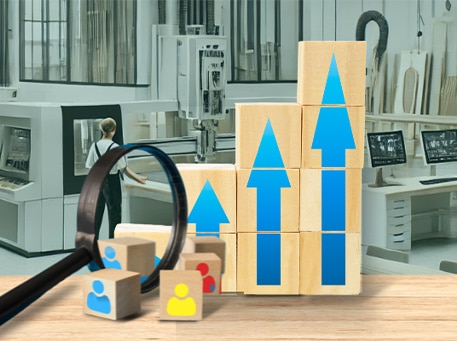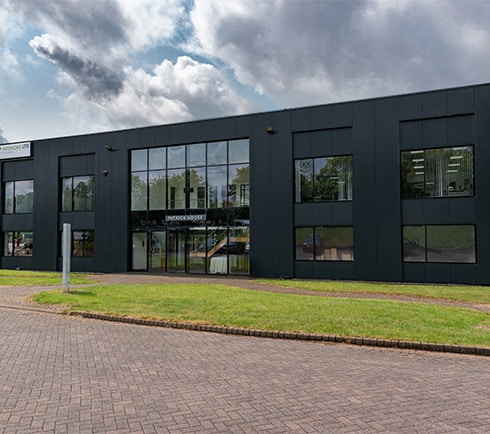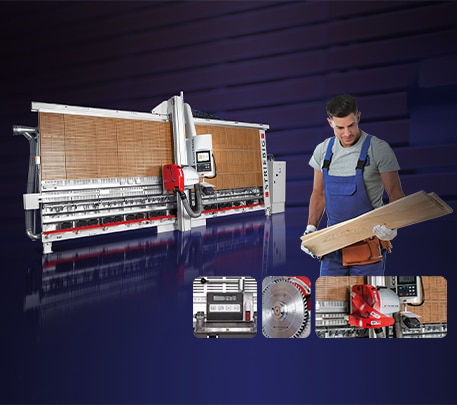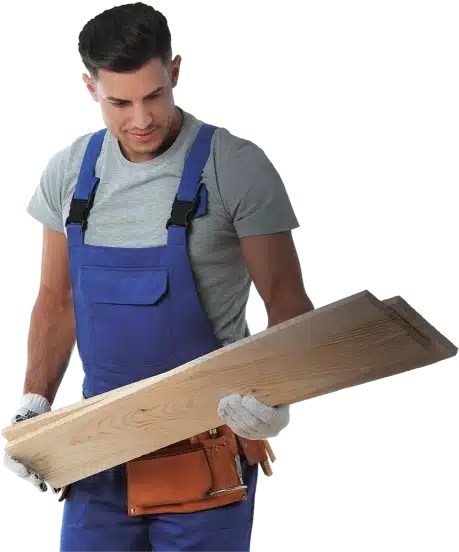The UK woodworking industry faces an ongoing challenge: finding skilled labour to meet production demands and capitalise on growth opportunities. Labour and skills shortages are significant, persistent hurdles.
Every woodworking business, including cabinet makers and bespoke joinery workshops, relies on skilled labour. Variables such as illness, holidays, spikes in demand and quality control can seriously impact production. It’s often smaller manufacturers and joinery shops that face the greatest challenges.
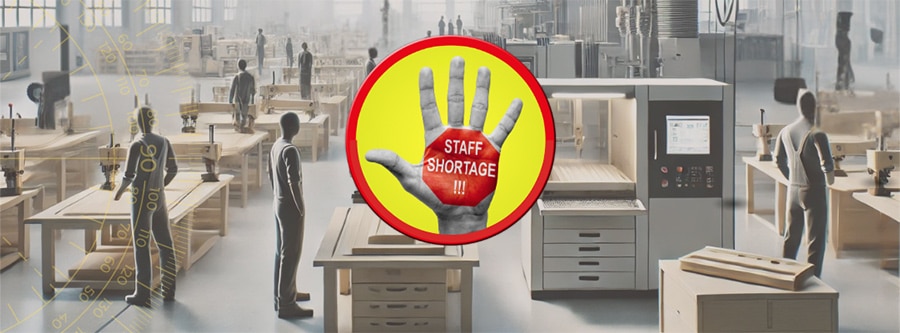
The Landscape of Labour Shortages in the UK Woodworking Industry
Labour shortages and skills gaps are major challenges across the UK, with rural businesses particularly hard hit. Reports indicate that nine out of ten rural firms struggle to fill positions, leading to lost business, unmet demand, and often having to outsource work.
The situation is complex, with 30% of businesses reportedly delaying or withdrawing some products or services altogether due to these challenges. Urban woodworking businesses, despite having a larger pool of potential staff, often face higher operational costs.
With high property costs and wages, increasing production may require additional employees and machinery, alongside square footage. Knowing where to invest is a complex and difficult decision.
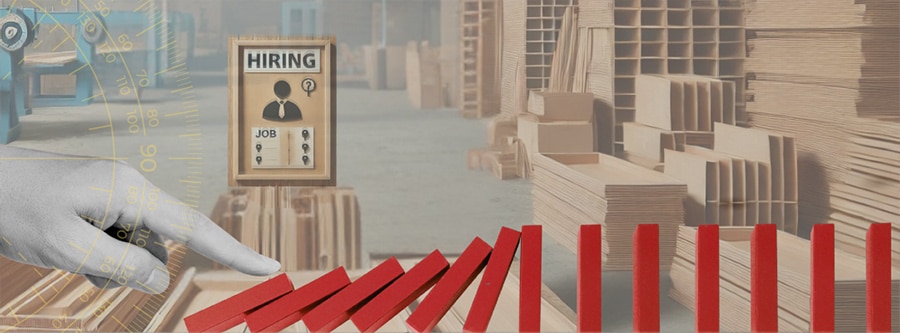
The Impact of Skill Shortages on Small Woodworking Businesses
Smaller manufacturers and joinery shops are especially vulnerable to labour and skills shortages. These businesses often operate with tight margins and depend heavily on a small, skilled workforce.
When faced with unexpected absences or high demand, the strain on existing staff can lead to overwork and decreased productivity. To address these issues, some businesses have resorted to outsourcing parts of their production.
However, this can lead to quality control issues, delays, and increased costs. Therefore, finding a sustainable solution within the business is crucial.
How Technology Can Help Solve Recruitment Difficulty
Minimising the impact of labour variables could be easier than you think. Investing in advanced woodworking machinery, can provide an immediate solution to labour shortages and build resilience.
Technology has transformed furniture production and cabinet making for many of the UK’s most successful joinery shops. Vertical panel saws, sliding tables saws, and spindle moulders are examples of woodworking machines that now benefit from advanced software and automation.
Machines equipped with automated features allow for precise control and movements. That’s difficult to achieve with conventional manual machining, since accuracy is almost solely dependent on the experience and skill of the operator.
Traditional machinery has its place, but the evolving manufacturing landscape demands modern tools and approaches for businesses to maximise potential. Here’s how:
- Automating Repetitive Tasks: Innovative machines can take over repetitive and labour-intensive tasks, reducing the workload on your staff and freeing them up for more complex and creative work.
- Increasing Production Capacity: By automating parts of the production process, innovative machinery can help increase your overall production capacity without necessarily needing additional staff. This allows you to meet higher demand and take on larger projects.
- Improving Consistency and Precision: The latest machines ensure precise and consistent results, reducing errors and material waste. This is crucial for maintaining high standards and meeting customer expectations.
- Enhancing Flexibility: Today’s technology allows for quick changes and adjustments, enabling you to switch between different projects and orders with minimal downtime. This flexibility is essential for small businesses to adapt quickly to market demands.
Capability for Woodworking Machinery
It’s not just large, high-production machines that feature the best technology; smaller machines such as Sliding Table Saws, vertical panel saws, planers and spindle moulders also come with advanced capabilities. These machines can greatly benefit cabinet makers and bespoke joinery kitchen manufacturers by increasing precision and reducing manual labour.
For instance, the Striebig 4D automated Vertical Panel Saw represents a quantum leap forward in vertical panel saw technology. This top-of-the-range model can optimise and cut a full-sized panel without the operator needing to re-handle it once it has been loaded onto the machine’s bed, providing effortless, one-person operation.
Designed for businesses with high levels of sizing requirements, it’s the world’s first automated vertical panel saw to offer intelligent cut optimisation, ensuring excellent levels of efficiency and maximum material utilisation.
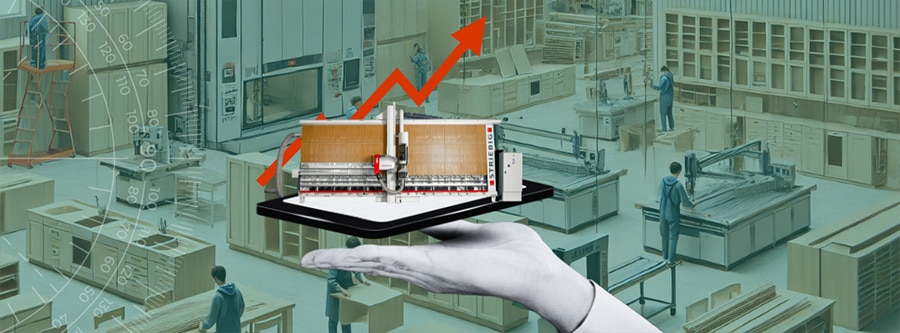
The Financial Impact of Automated Machinery
While the initial investment in modern machinery may seem higher than more traditional models, the long-term benefits far outweigh the costs. With high manufacturing and staffing costs, the right machinery will help you maximise the efficiency of your employees and materials. Here are some key financial advantages:
- Reduced Labour Costs: By automating certain tasks, you can reduce the number of hours needed for production, reducing associated costs and redirecting time to other tasks.
- Increased Efficiency: Automated machines operate with precision, reduce vulnerability to skillsets, boost production output and reduce lead times. This increased efficiency can lead to higher profits and a better return on investment.
- Lower Material Waste: The precision of advanced machinery minimises errors and material waste, leading to cost savings on raw materials and contributing to more sustainable practices.
Preparing Your Business for CNC Integration
Updating machinery and integrating technology into your woodworking business requires careful planning and preparation. Whilst no one knows your customers and products better than you do, partnering with an experienced woodworking machinery supplier will help you define your current and future goals and avoid costly mistakes. Here are some steps to consider:
- Assess Your Current Processes: Conduct a thorough assessment of your current production processes to identify areas where automation can provide the most significant benefits and how to integrate with current machinery.
- Choose the Right Equipment: Work with a reputable machinery supplier to select the machines that best meet your needs. There are some very advanced capabilities out there, so it’s important to focus on what is really needed. Consider factors such as the types of projects you handle, future flexibility, production volume, and your budget.
- Train Your Staff: Allowing time for proper training is essential to ensure your team can effectively operate and maintain the new equipment and maximise the benefits of technology. Additionally, many top brands focus on providing intuitive software interfaces, making it easier for your staff to learn and use the machinery efficiently.
- Plan for Integration: Working with an experienced machinery supplier is the fast-track route to developing an effective plan for integrating new machinery into your existing workflow. This should include timelines, resource allocation, and contingency plans to minimize disruptions to current production.
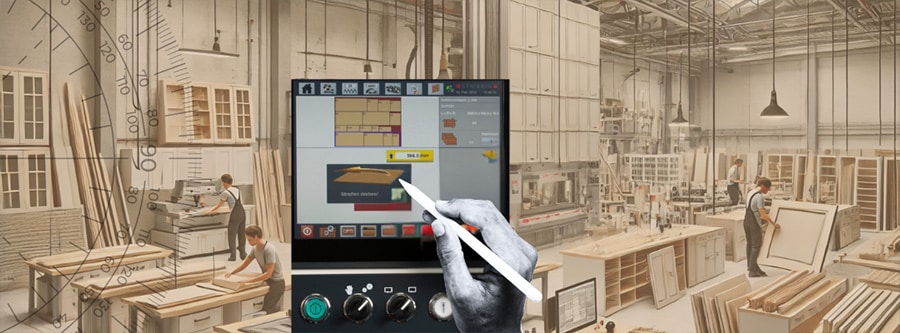
Leveraging Advanced Woodworking Machinery to Address Future Challenges
As the woodworking industry and consumer demands continue to evolve, staying ahead of technological advancements is the key to long-term success. It can feel that there are not enough hours in the day, but some of the best time management advice is making space in the busiest times creates the opportunity to achieve more. If you want to stay one step ahead, making the most of technology will help with for future growth:
- Continuous Improvement: Regularly review and update your processes to incorporate new technologies and best practices. This will help you stay competitive and meet changing market demands. Allocating dedicated time for regular reviews makes it easier to see the bigger picture and future direction.
- Adopt a Digital Mindset: For smaller firms, adopting digital tools can streamline operations and improve project management. Many joinery shops already use CAD/CAM software for design and planning. Integrating the latest apps for inventory management, client presentations and improved communication, can all save time and boost efficiency. For many businesses, social media has presented an ideal opportunity to showcase work, not just after installation but in the process of being manufacturing.
- Explore Industry Trends: Stay informed about industry trends and innovations by attending trade shows, joining professional associations, and participating in online forums. For the smaller business, this is a great way to feel less isolated and to stay motivated, particularly in challenging times.
Furthermore, the knowledge gained can help you identify new opportunities and stay ahead of competitors.
Conclusion: Building a Resilient Woodworking Business
Balancing investments between labour and machinery isn’t about choosing one over the other but finding the right mix. In a market where labour and skills shortages remain prevalent and the demand for bespoke products is increasing, integrating advanced machinery into your production lineup is a strategic move that can help future-proof your business.
Investing in advanced woodworking machinery will enhance production speed and precision, helping you build a more resilient and adaptable operation.
Adding modern machinery may seem like a significant leap from traditional methods, but it’s a straightforward process. The intuitive software interfaces offered by many top brands make it easier for your staff to master the new technology quickly, so you can ramp up production and precision in no time.
Find how technology can fit into your workshop
Ready to find out more about the best investments for efficiency and growth? Contact the team at TM Machinery to discuss your specific needs, and we’ll guide you through every step of the process.
